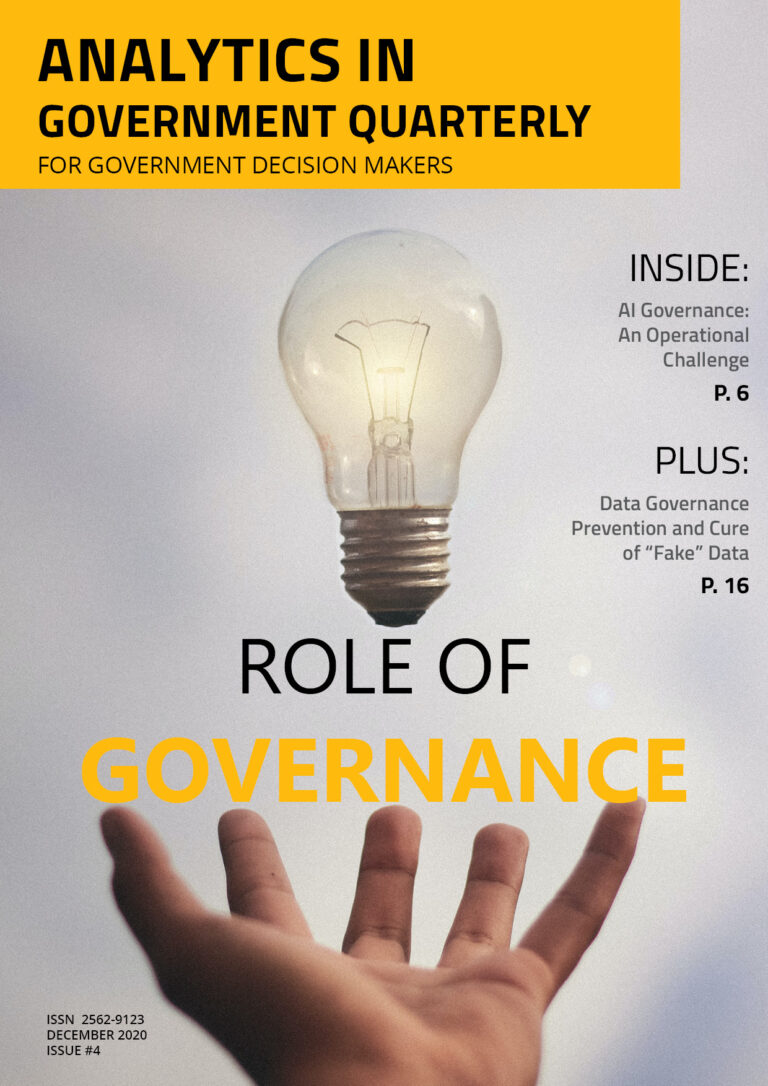ANALYTICS IN GOVERNMENT QUARTERLY
DECEMBER 2020
Despite many actors’ attempts to define principles for responsible use of AI, nothing substantial has been achieved, except loosely-stated fashion principles. However, the authors did not identify the factors that may have contributed to the absence of AI governance framework nor what is required to establish such a framework.
Although it’s a very complex area, most government organizations already have the tools in place: business cases, performance measurement, and audit.
FEATURES
COLUMNS
The lack of a citizen identity consistency and the integrity of such data has created challenges, and techniques like entity resolution can help.
Within the parameters of a governance framework organizations should have a Data Governance Committee. The authority of this committee should include oversight regarding the operationalization of data management and data integrity.
A recent review of data governance in the academic and industry literature summarized “critical success factors” for data governance.
How important is it to consider diversity & inclusion when it comes to analytics? An article from McKinsey shows that “Companies in the top quartile for gender diversity outperform their competitors by 15% and those in the top quartile for ethnic diversity outperform their competitors by 35%”

![Use 'AI' to ensure [data security]](https://governmentanalytics.institute/wp-content/uploads/2020/02/trace-3157431_1920-768x512.jpg)

